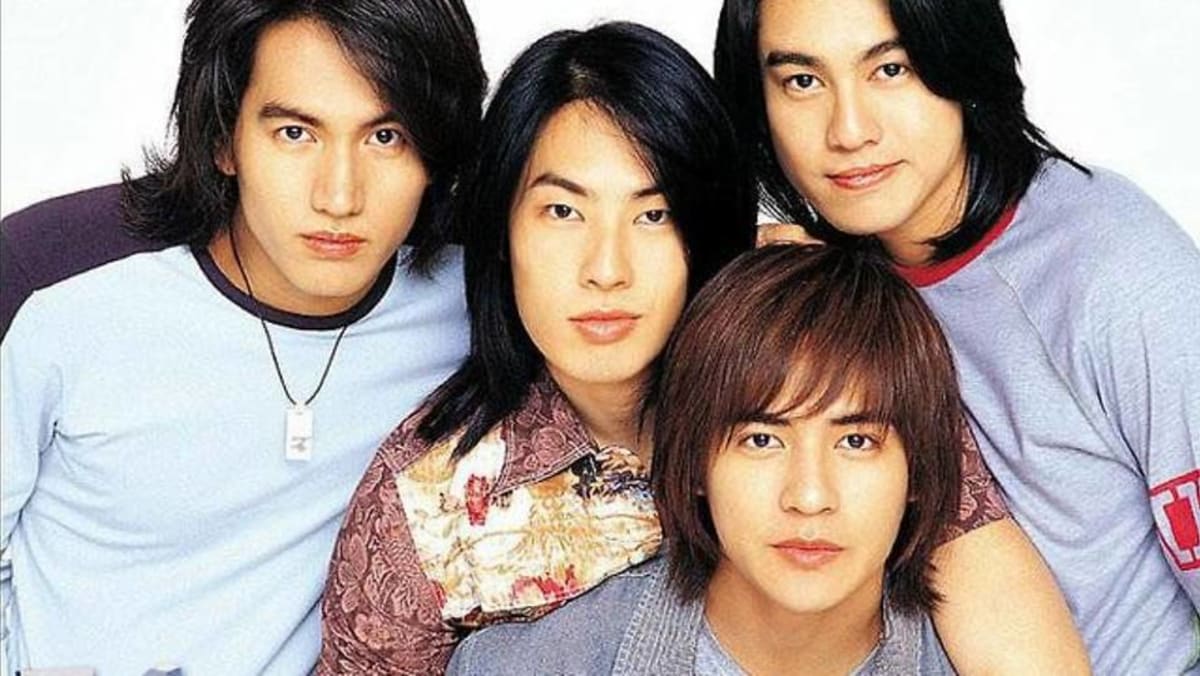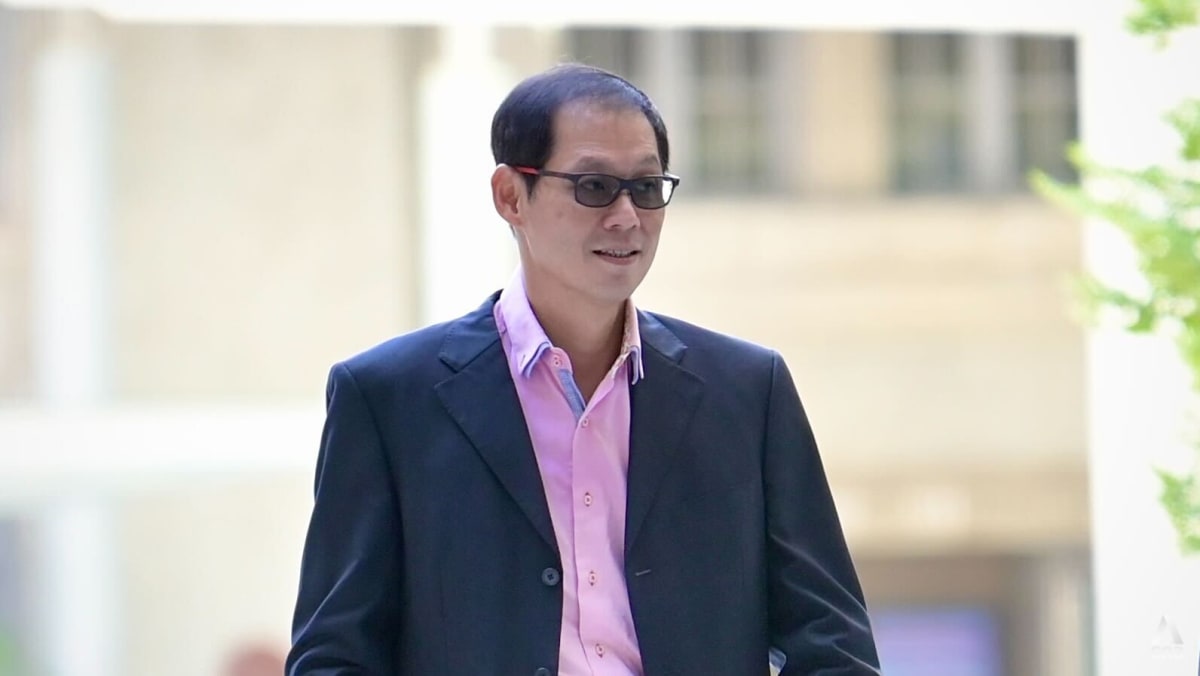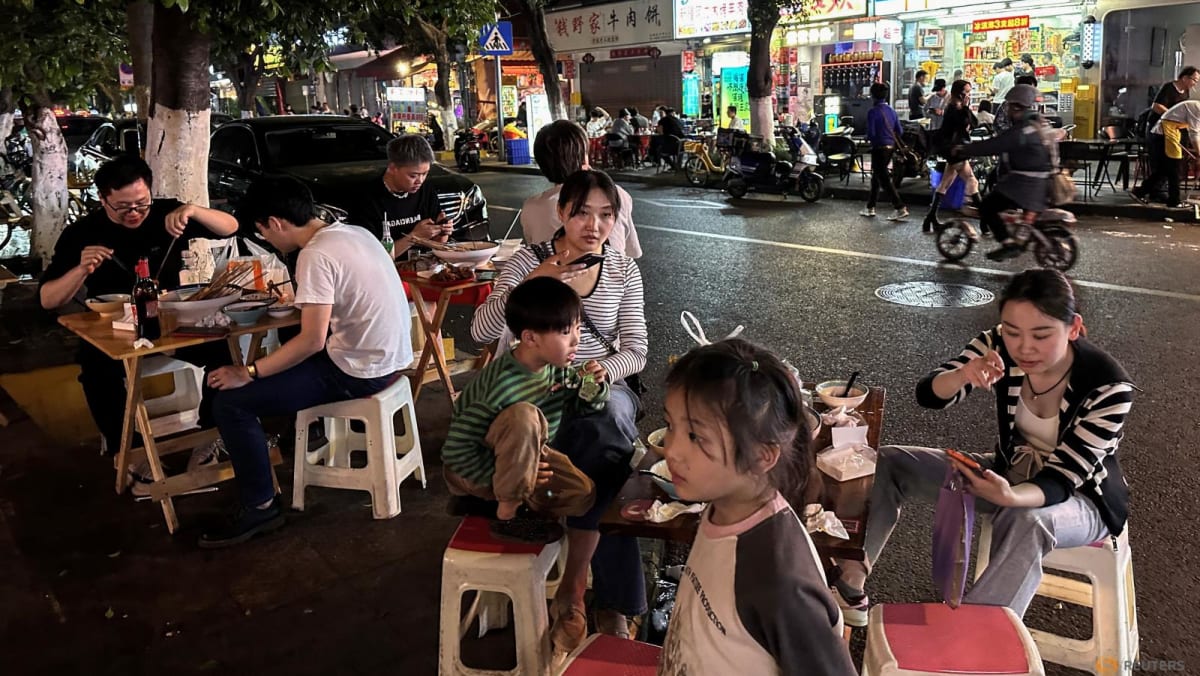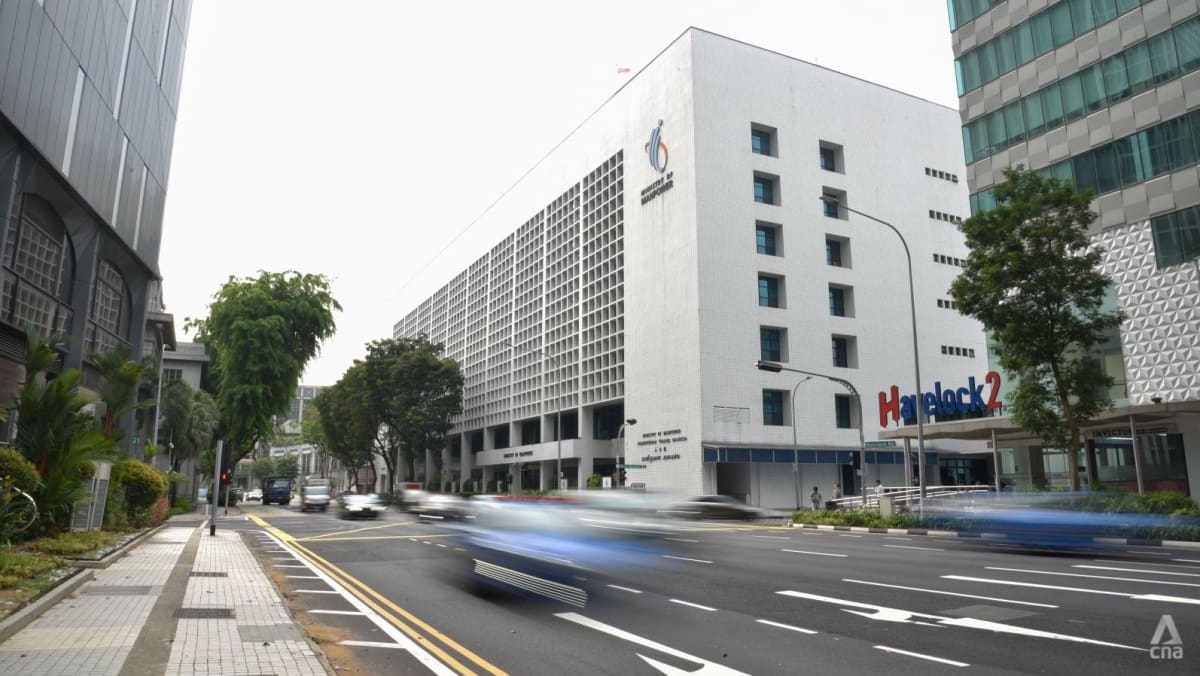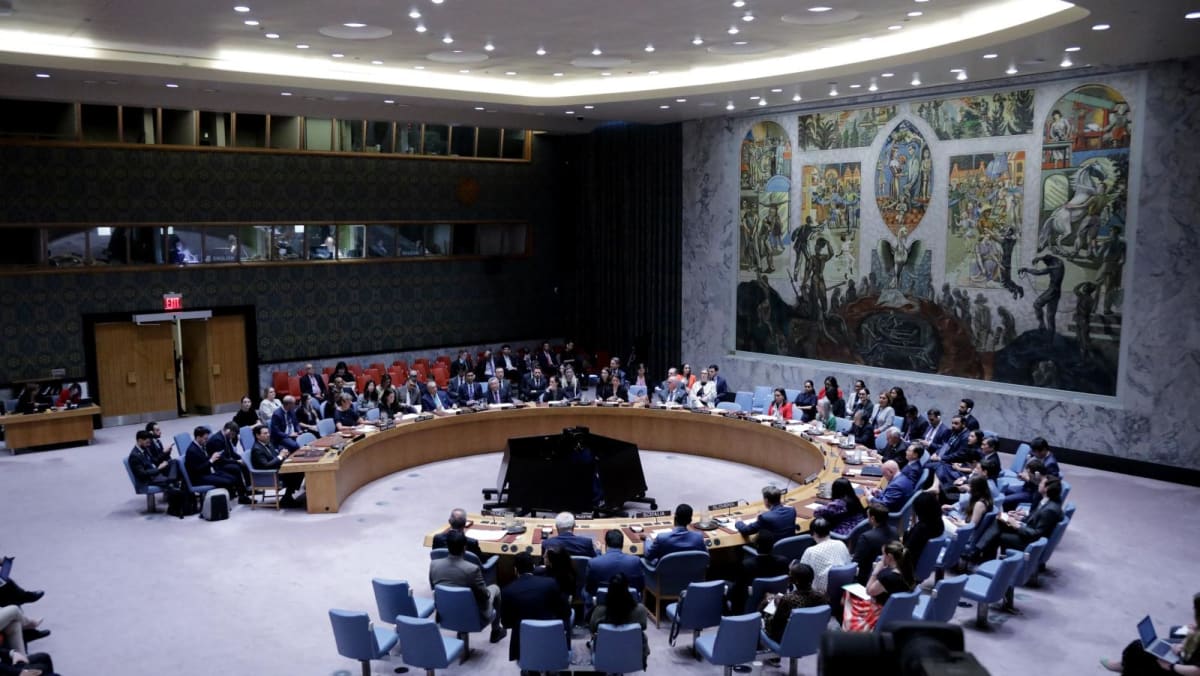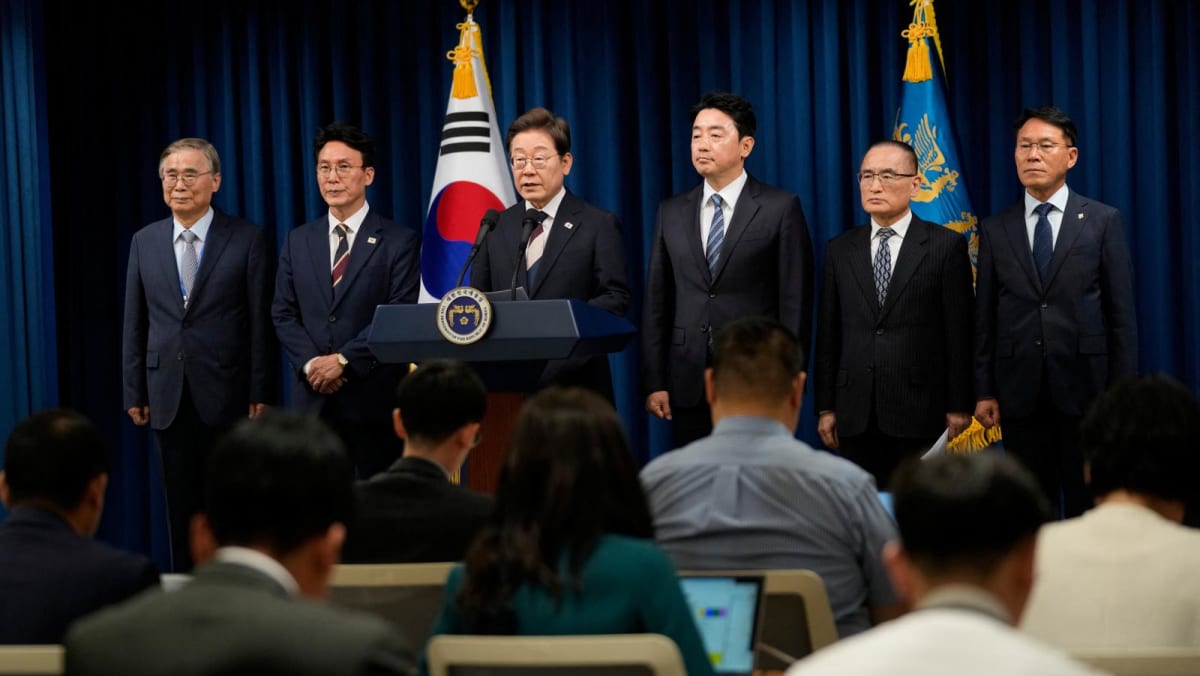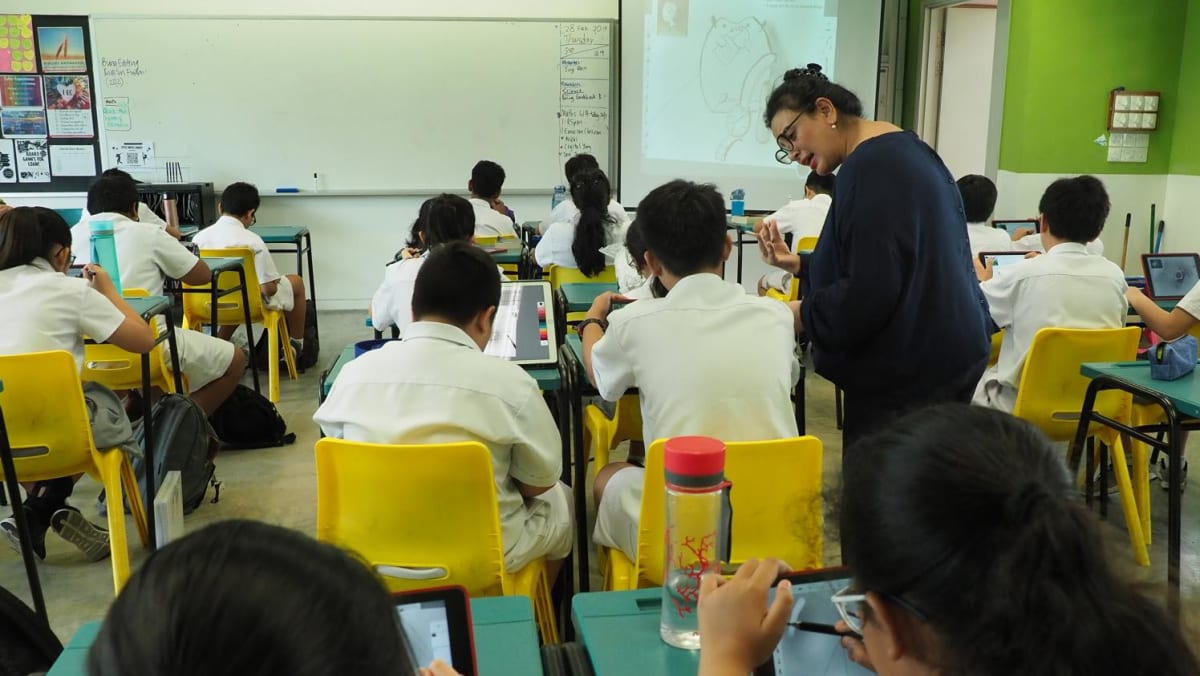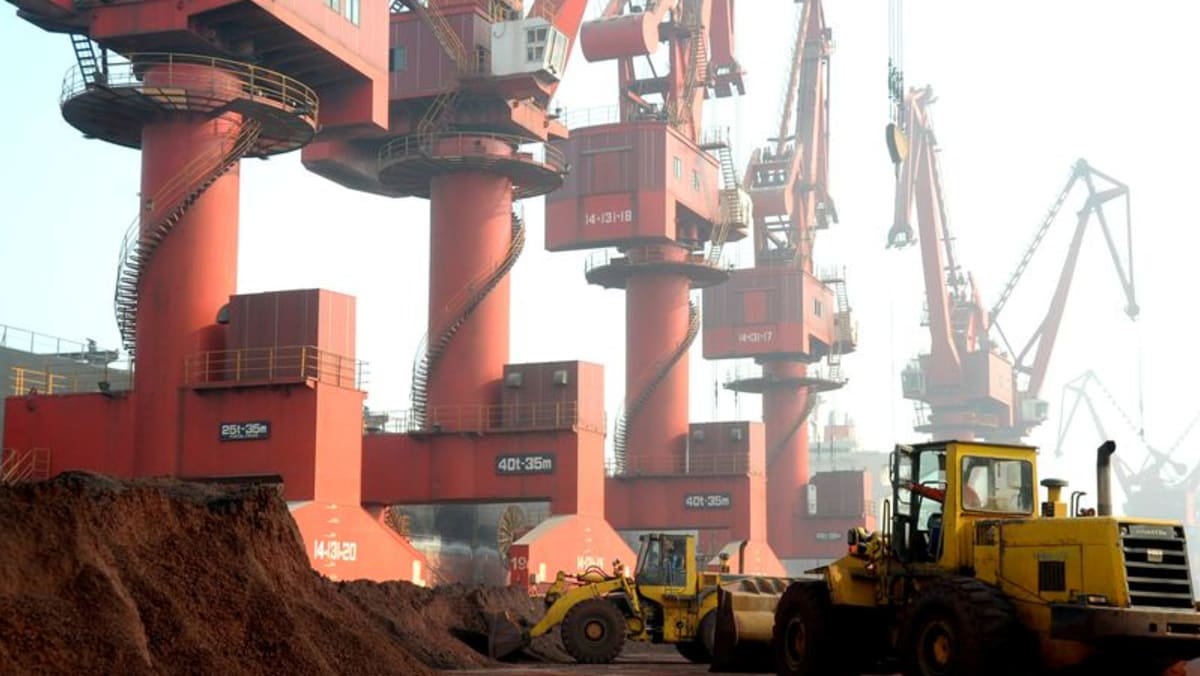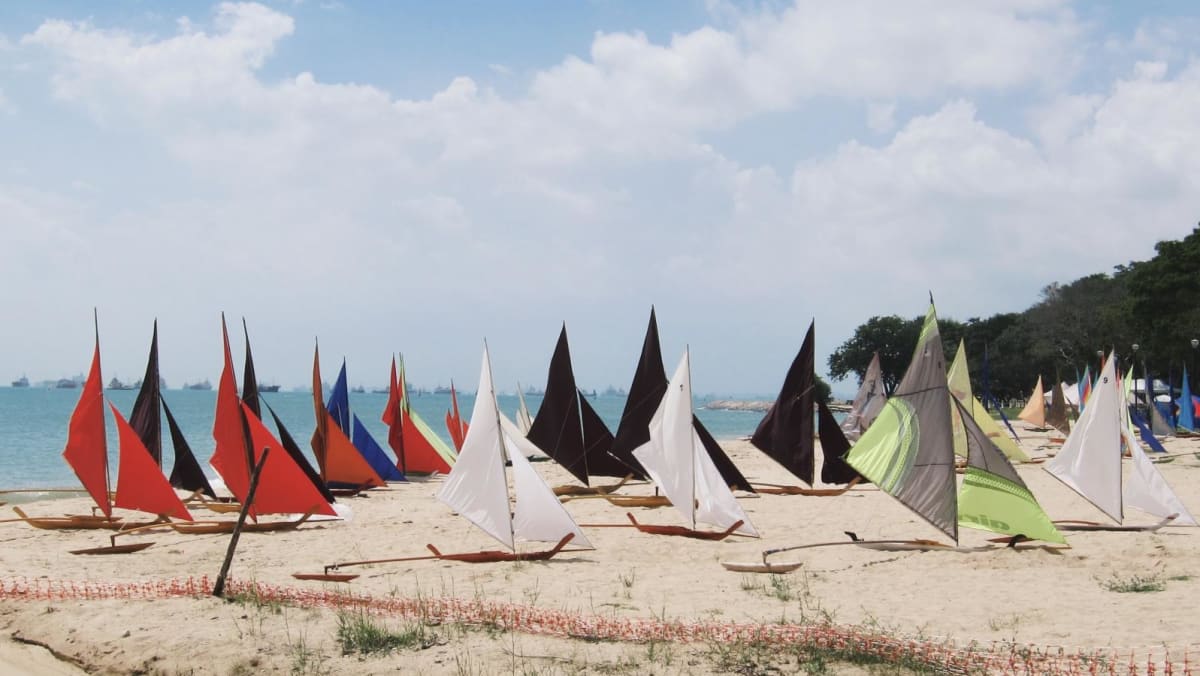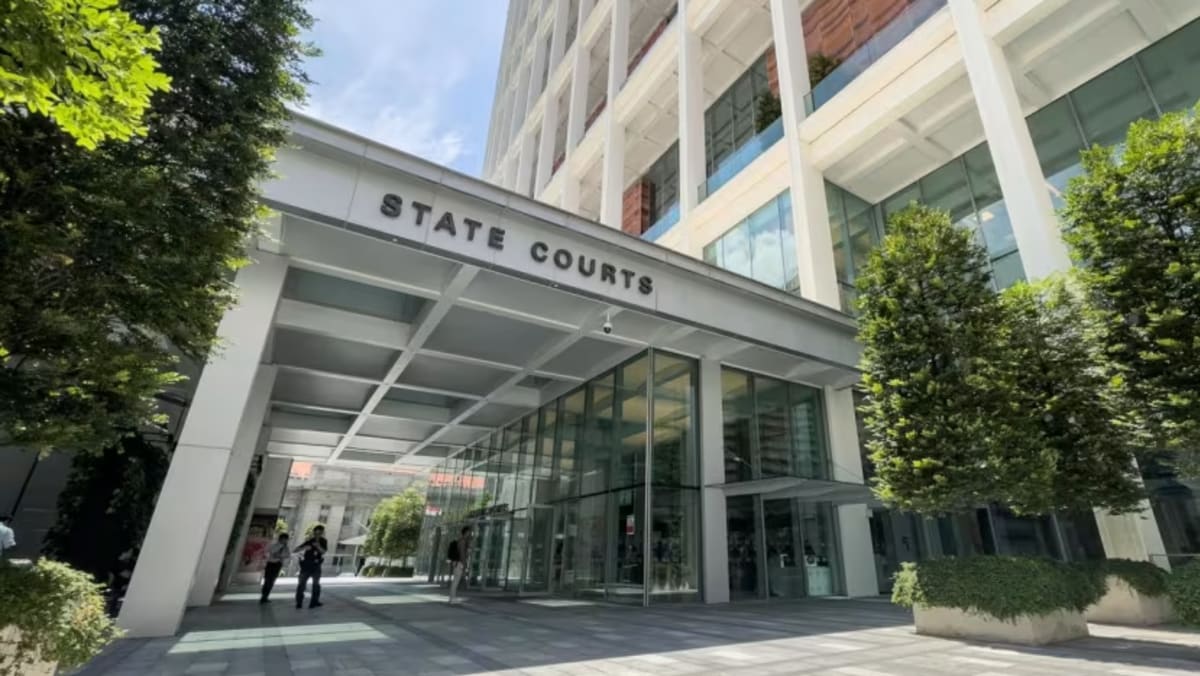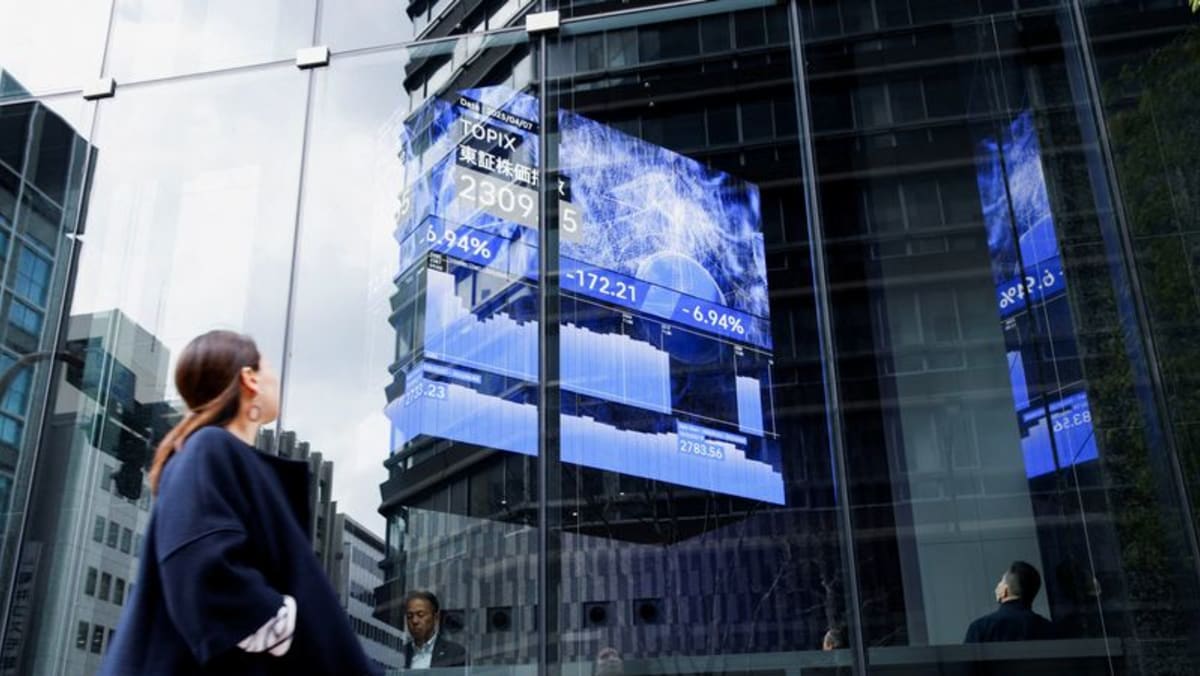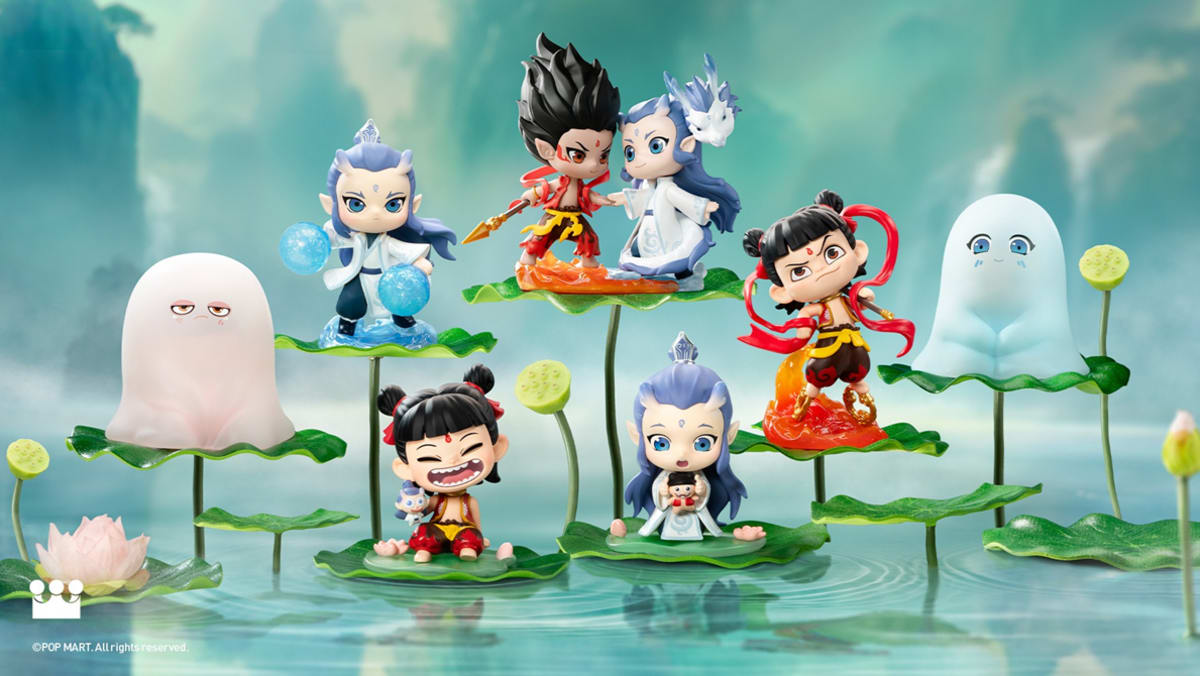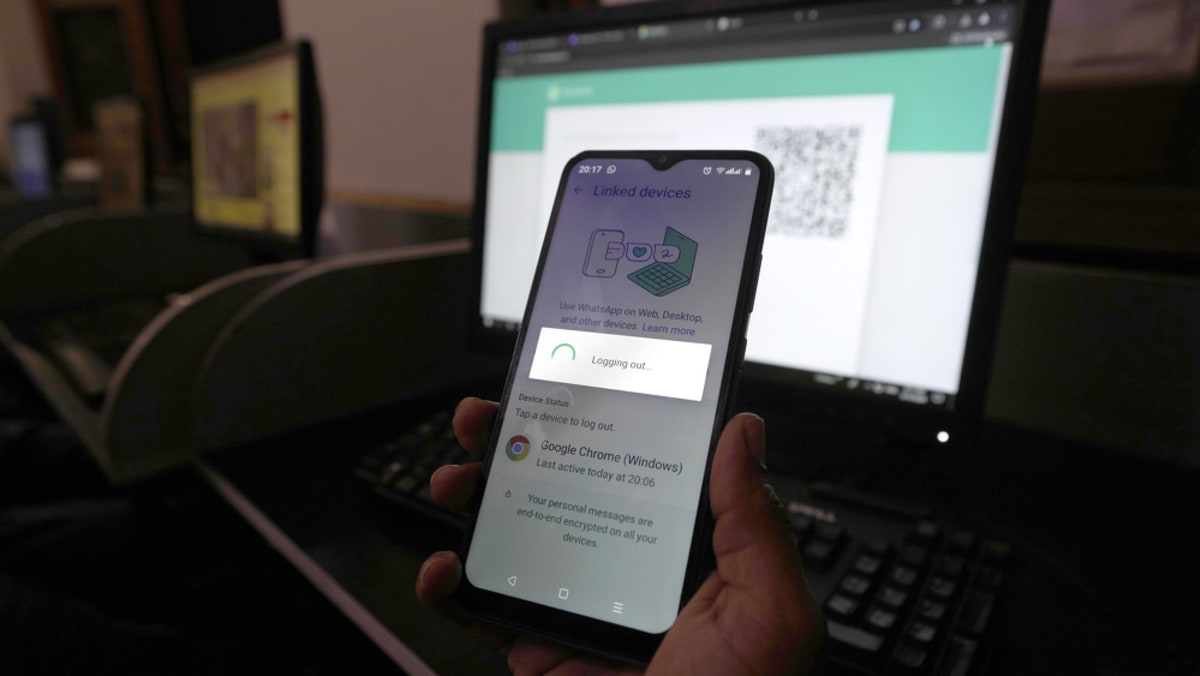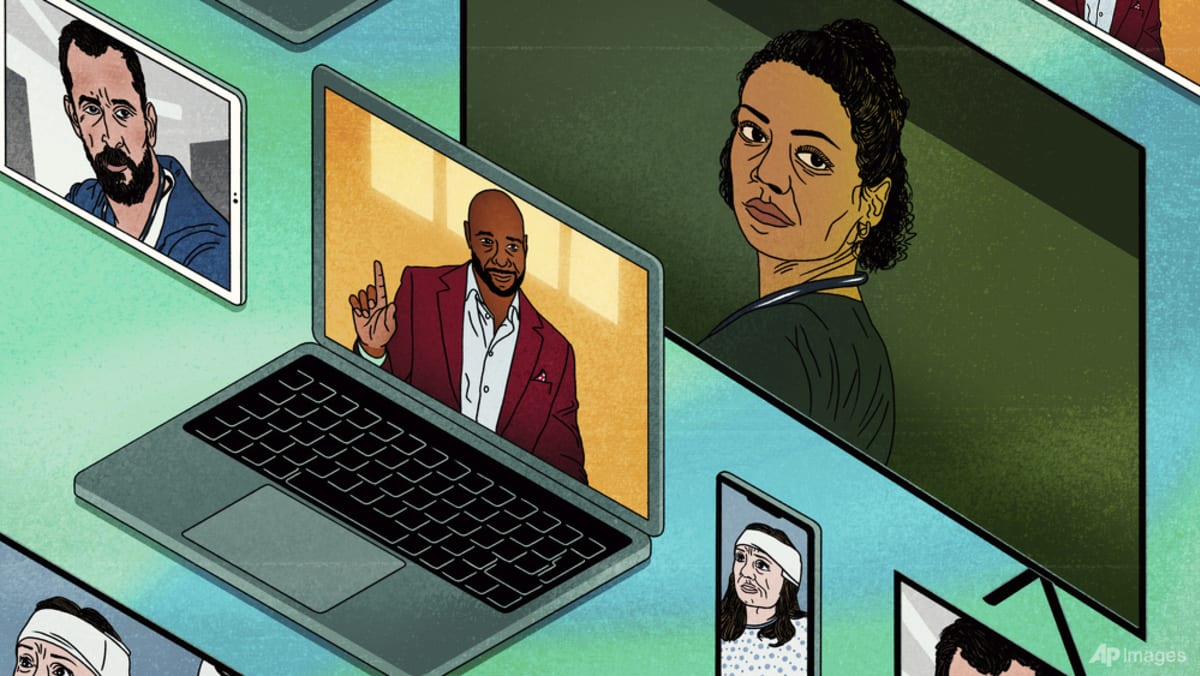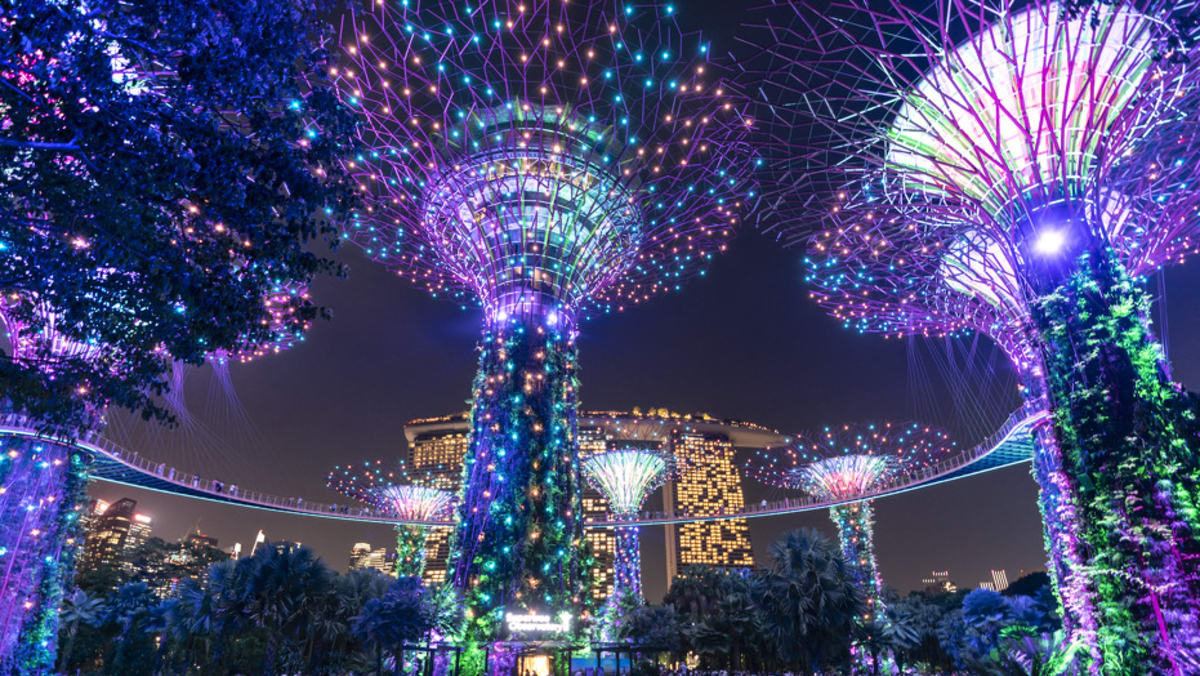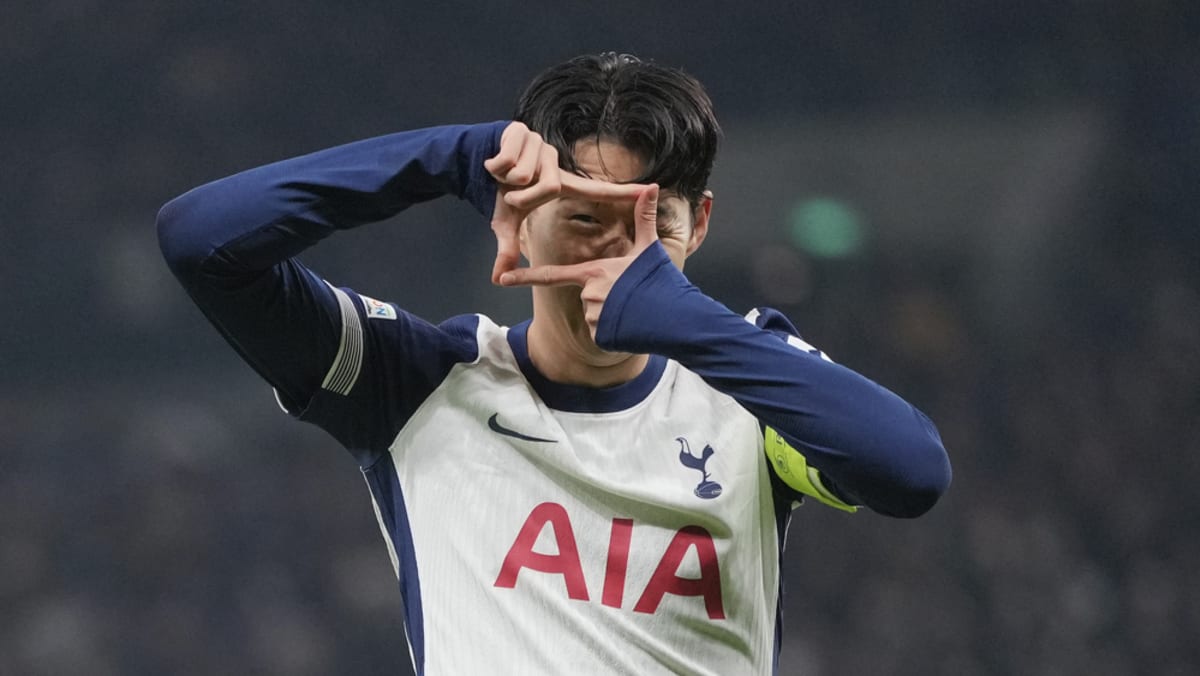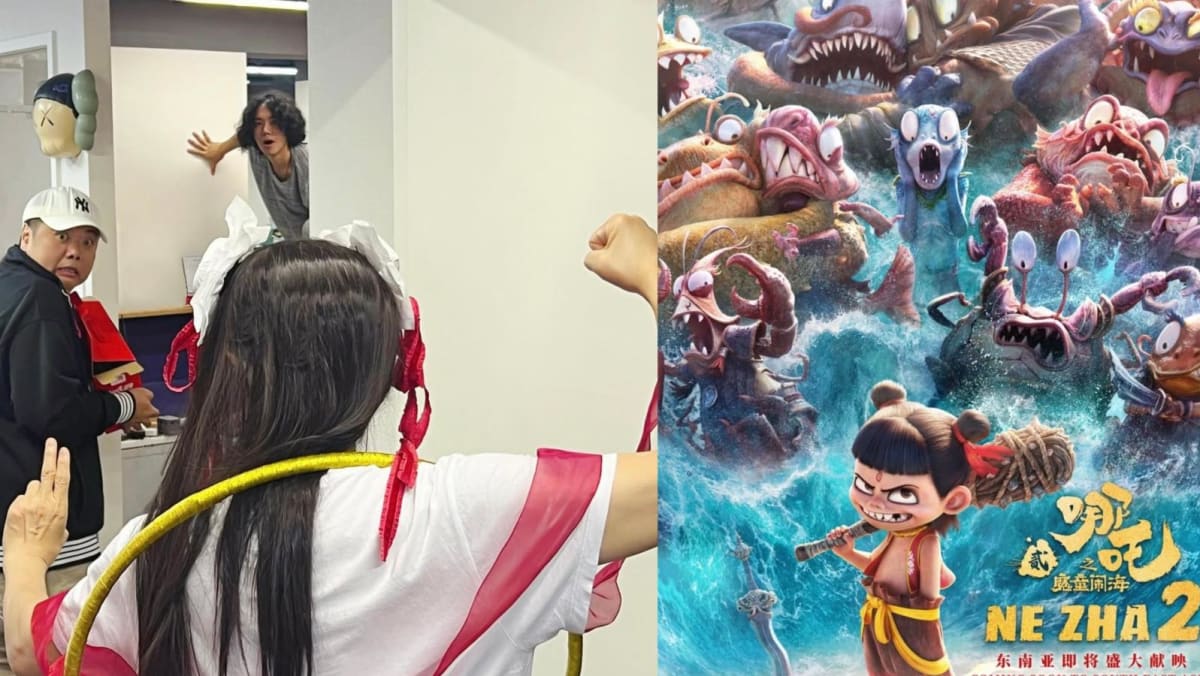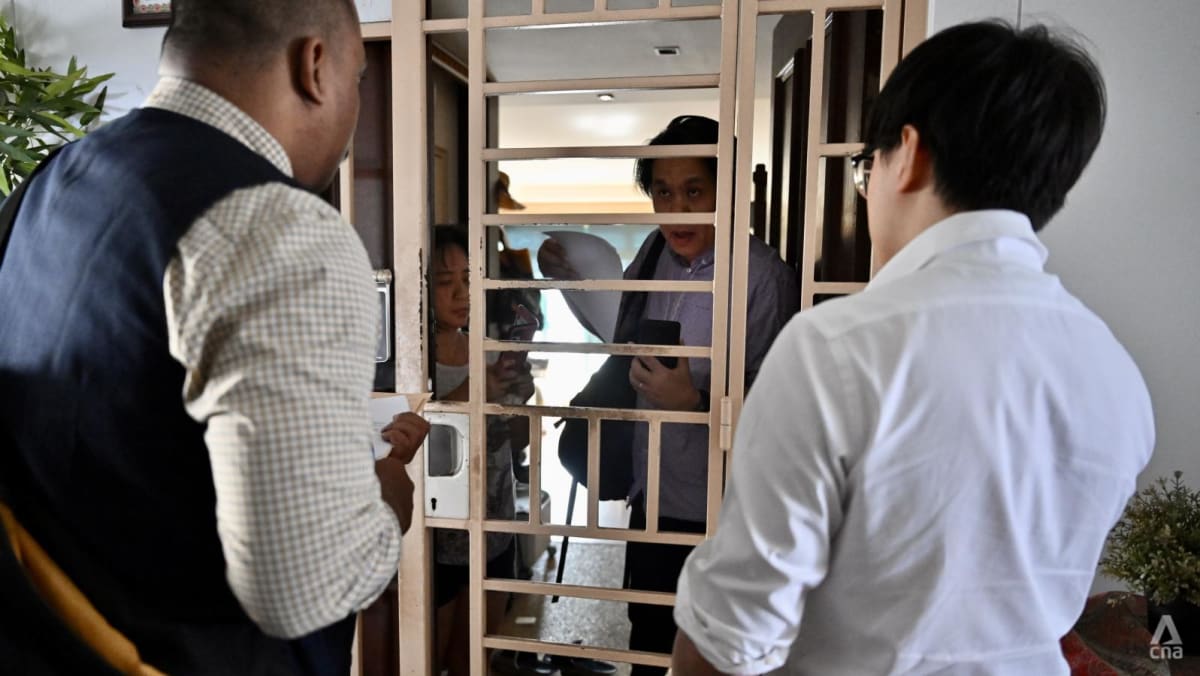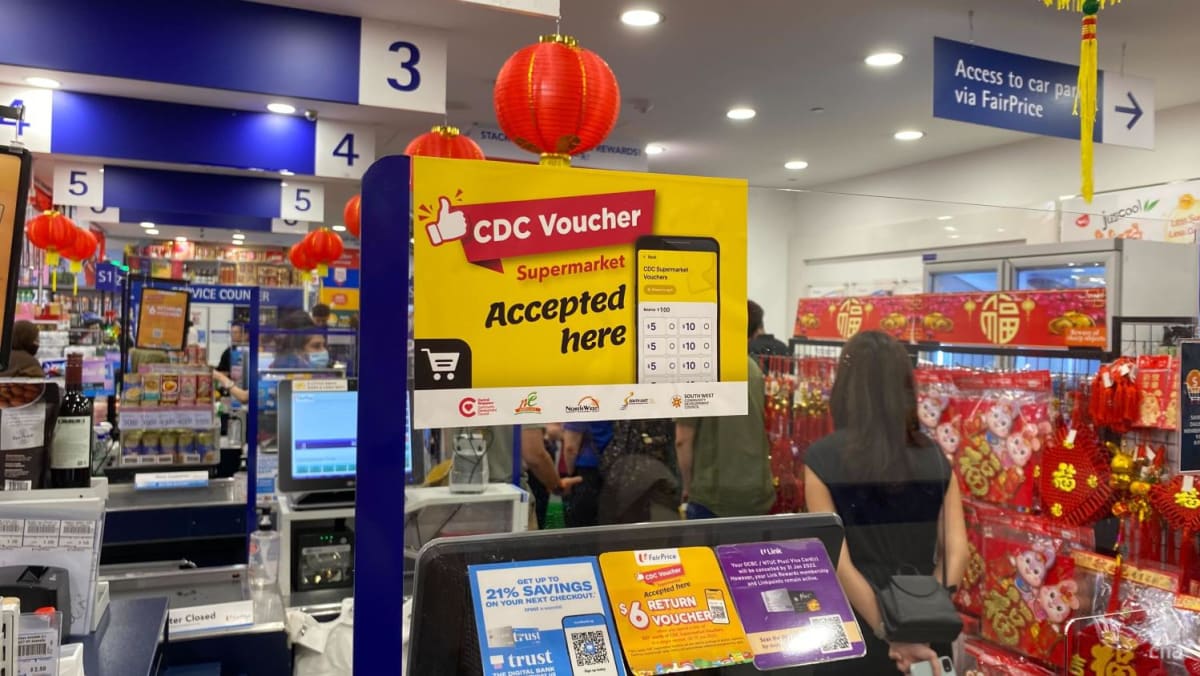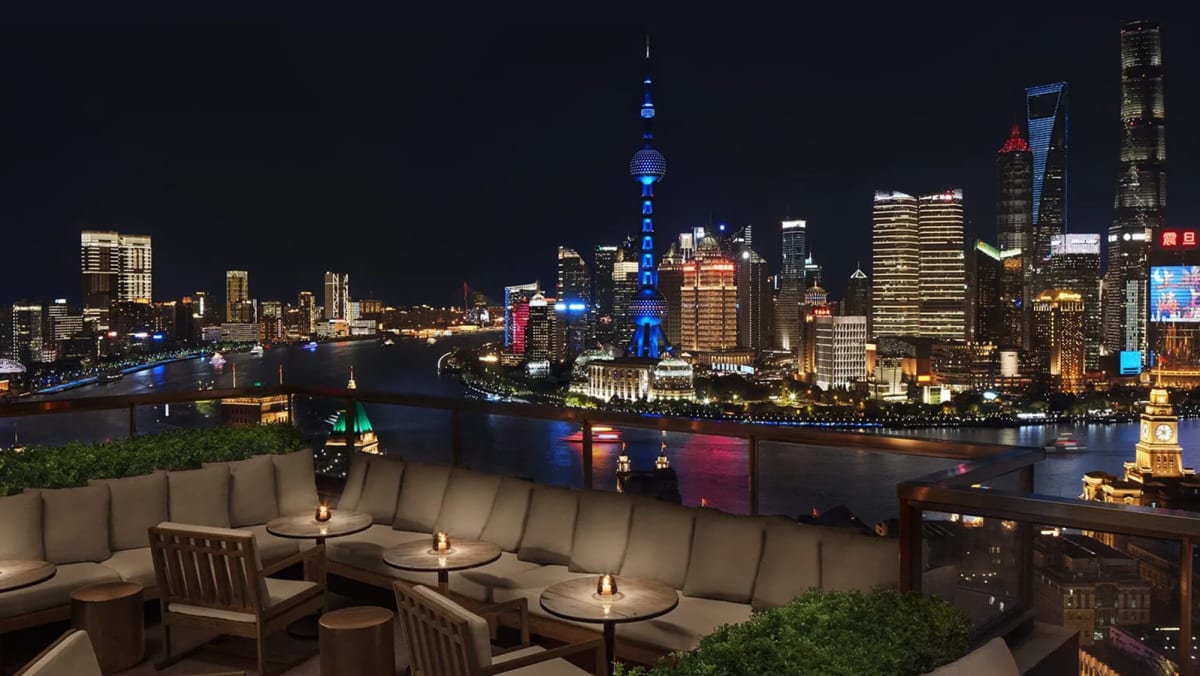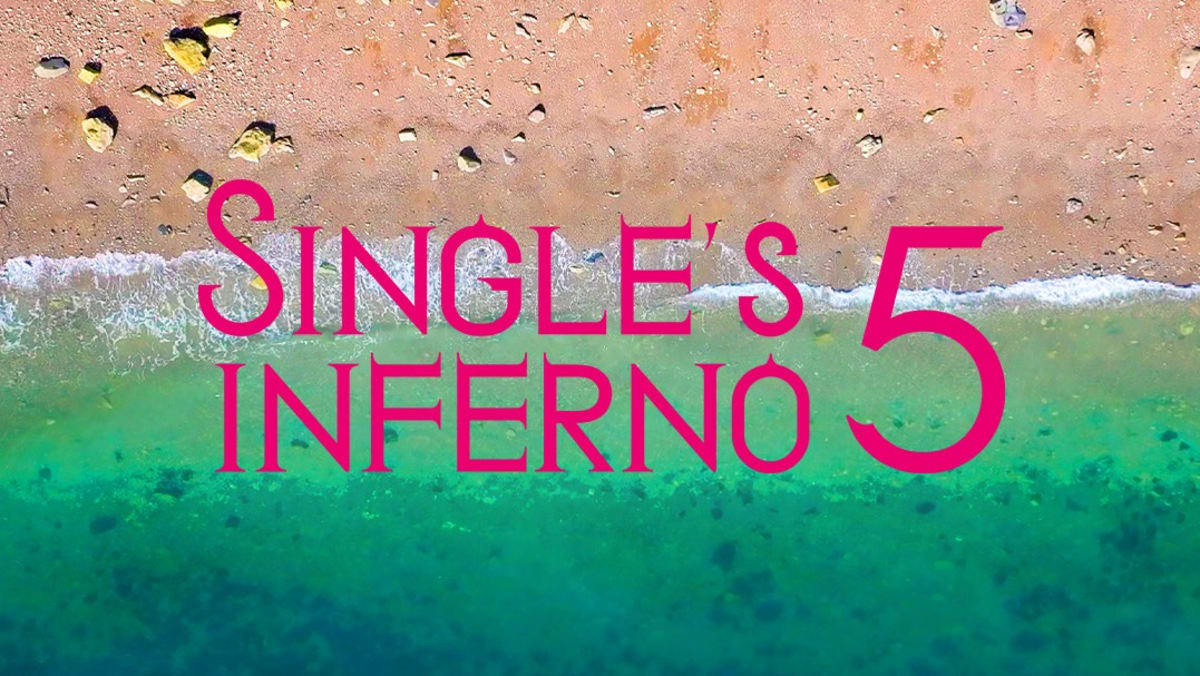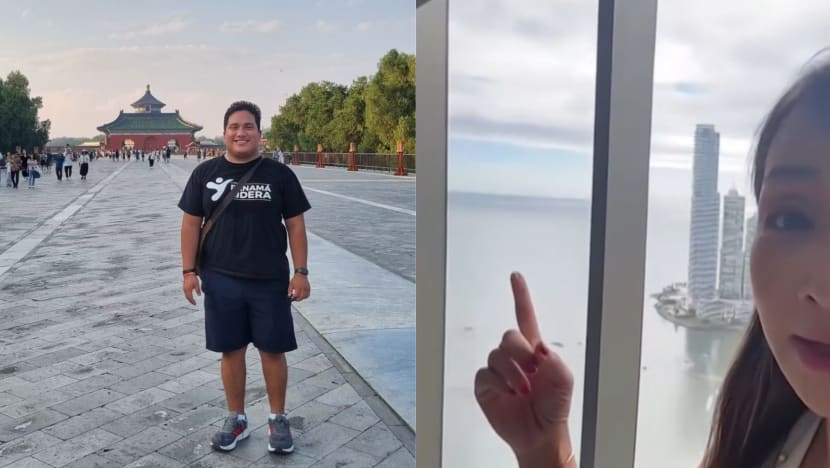
Panamanian Moises Castillo (L) in Beijing, and Chinese national Zhou Mei in her office in Panama overlooking the Pacific Ocean.
New: You can now listen to articles.

This audio is generated by an AI tool.
BEIJING: Shipping business owner Zhou Mei’s videos on Chinese social media application WeChat have been getting more attention lately.
The 49-year-old Chinese national regularly posts snippets of her work and family life in Panama, including views from her office of ships waiting to pass through the Panama Canal.
In recent weeks, the vital waterway – through which 5 per cent of all global shipping passes – has made headlines and, in turn, drawn viewers to Zhou.
Shortly before United States President Donald Trump returned to the White House in January, he announced his intention to “take back” the Panama Canal from what he termed “China control”. Since then, he has ramped up calls for the US to “reclaim” it.
During a visit to Panama on Tuesday (Apr 8), US Defense Secretary Pete Hegseth warned that America will not allow China and other nations to "threaten the canal's operation or integrity".
Amid this ongoing tussle between Beijing and Washington over the strategic trade route, Hong Kong tycoon Li Ka-shing became the latest to be caught in the middle.
Li’s logistics conglomerate CK Hutchison said last month that it planned to sell dozens of its ports, including two located at the Panama Canal, to a consortium led by American investment firm BlackRock.
The deal – worth more than US$19 billion in cash – triggered an angry reaction from Beijing, which claimed the company “betrayed” China.
All this has put the tiny country of Panama with a population of 4.5 million people on the map.
IMPACT ON ORDINARY PEOPLE
The fight over the strategic trade route has not just impacted big businesses – it has also affected those like Zhou, as well as young Panamanians studying in China.
Married to a Panamanian, Zhou told CNA that she expanded her shipping business in Shanghai to the Latin American nation in 2004.
This was way before Chinese presence at the Panama Canal surged and before Panama switched diplomatic ties from Taiwan to Beijing in 2017.
Zhou said Trump gave Panama “free advertisement all over the world”.
“For China, we have so many shipping companies that have a lot of business dealings with Panama. Your logistics, your shipping service and your fleets have to go through the Panama Canal - the channel to Latin America,” she noted.
Her online videos have also been her way of staying in touch with loved ones, especially when she was unable to return to China for four years during the COVID-19 pandemic.
“I really want to use this (social media) channel, not only to let my family but also to let my many shipping customers know about Panama, including many of my good friends,” she added.
“They don't know about Panama's tourism resources, so for me, it is a very good opportunity.”
On the other hand, Panamanian undergraduate Moises Castillo has not found a reason to celebrate his country’s newfound fame.
The 23-year-old, who is in his second year of university in Beijing, is among many young Panamanians granted a Chinese government scholarship to study in China.
While he had offers from schools in other countries, including the US, he said he chose to study civil engineering in China due to its affordability and potential opportunities.
Job offers have already landed at his doorstep from Chinese companies operating in Panama.
“Panama is a developing country, so we need a lot of infrastructure like bridges (and) railways. I was thinking it’s a good opportunity and at that time, China was also investing a lot in Latin America with infrastructure projects, so I was thinking I could work in some of these in the future,” he added.
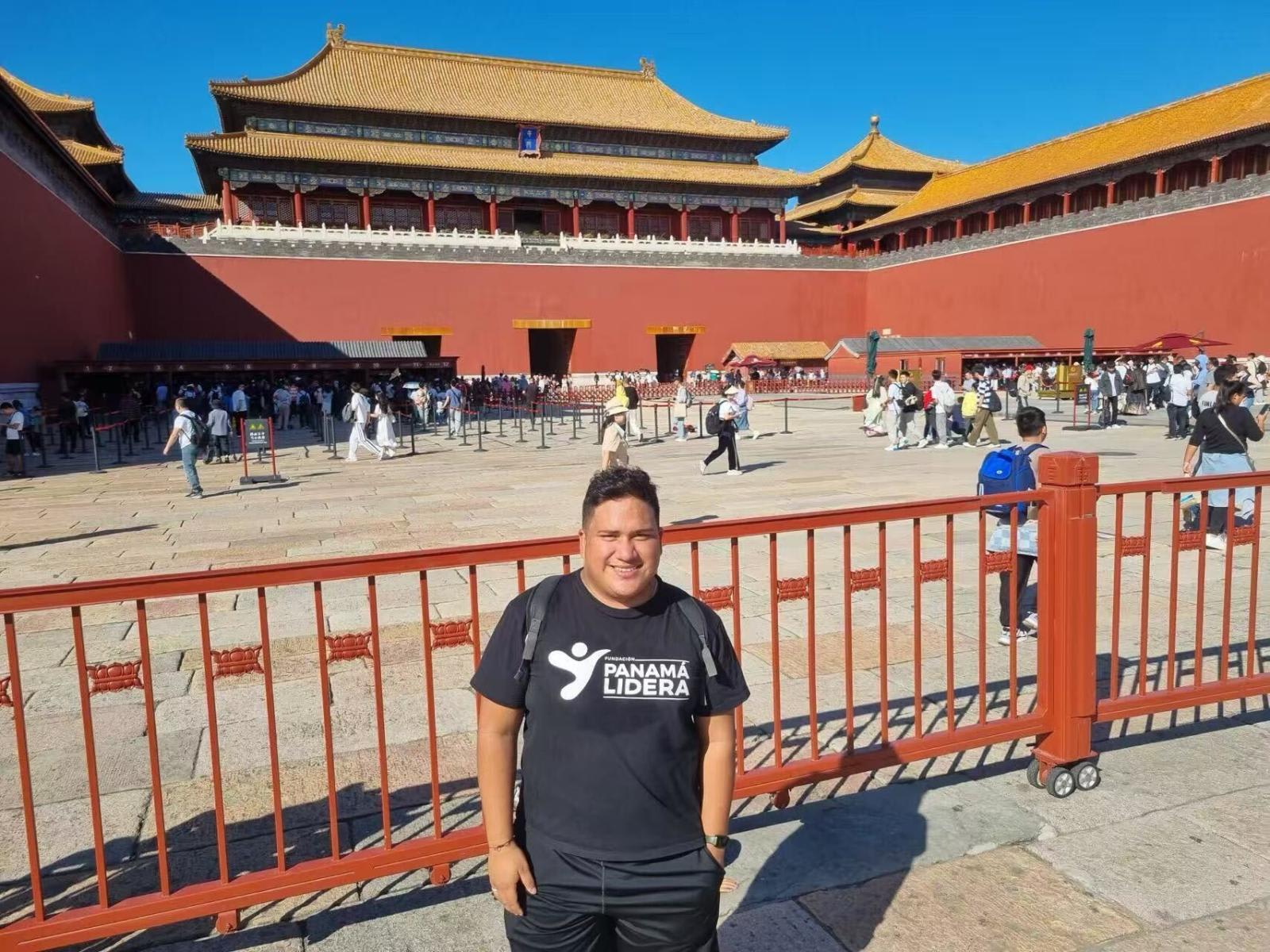 Panamanian student Moises Castillo, 23, in Beijing. (Photo: Moises Castillo)
Panamanian student Moises Castillo, 23, in Beijing. (Photo: Moises Castillo)
But Castillo said he grew concerned when he first heard the news that Panama was pulling out of China’s Belt and Road Initiative (BRI). The trillion-dollar infrastructure programme operates in more than 100 countries.
"I was kind of sad, frustrated and a little bit worried,” he added.
“If the relationship between China and Panama is difficult, how is that going to affect my future? … How is that going to affect me having a scholarship here?”
RELATIONS BETWEEN CHINA, PANAMA
It was against this backdrop that China reacted strongly to Hong-Kong listed CK Hutchison's sale of its Panama port operations to BlackRock.
Panama lies more than 14,000km away from Beijing, across the Pacific Ocean, and has been called the gateway to South America for its key geographic role in terms of connectivity and trade.
China is Panama’s largest trading partner and is keen to deepen connections there, in its bid for resources like lithium and other agricultural products like soybean and corn.
Beijing is also the second-biggest customer of the Panama Canal after Washington, with about a fifth of the cargo that passes through the waterway belonging to China.
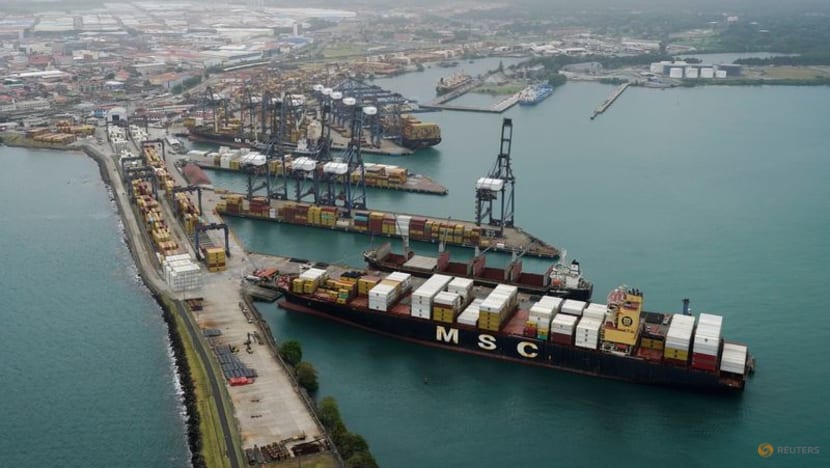 An aerial view shows a vessel at Cristobal port after transiting through the Agua Clara locks in Colon, Panama, Feb 1, 2025. (REUTERS/Enea Lebrun)
An aerial view shows a vessel at Cristobal port after transiting through the Agua Clara locks in Colon, Panama, Feb 1, 2025. (REUTERS/Enea Lebrun)
CK Hutchinson’s deal with BlackRock was ultimately not signed last week as planned, after China announced an antitrust review of the agreement.
Analysts said Beijing’s diplomatic victory over the Panama Canal will likely motivate the Trump administration to repeat the stunt.
Meanwhile, one expert predicted that 20 to 30 countries could follow Panama in dropping out of the Belt and Road Initiative within the next year.
"What's important are the politics and the optics,” said Eric Olander, editor-in-chief of The China-Global South Project.
“One cannot overstate how important this is - that forcing a country to withdraw from BRI, and seeing the reaction that Trump and (US Secretary of State) Marco Rubio got in the United States among their base, is going to motivate them to (force) dozens of other countries (to also withdraw from BRI).”
Olander added that “vulnerable countries” will have to decide whether to be in China’s or America’s “sphere of influence”.
Still, he said this would not detract from the BRI’s longer-term strategy.
“It just means they have to recalibrate in a much more contentious environment. The first and foremost priority for (Chinese President) Xi Jinping today is protecting the domestic economy,” he noted.
“He’s got to keep that domestic economy moving forward, and so I think the US-China relationship is more important than the China-Panama relationship. So, they're kind of going to let Panama go.”



